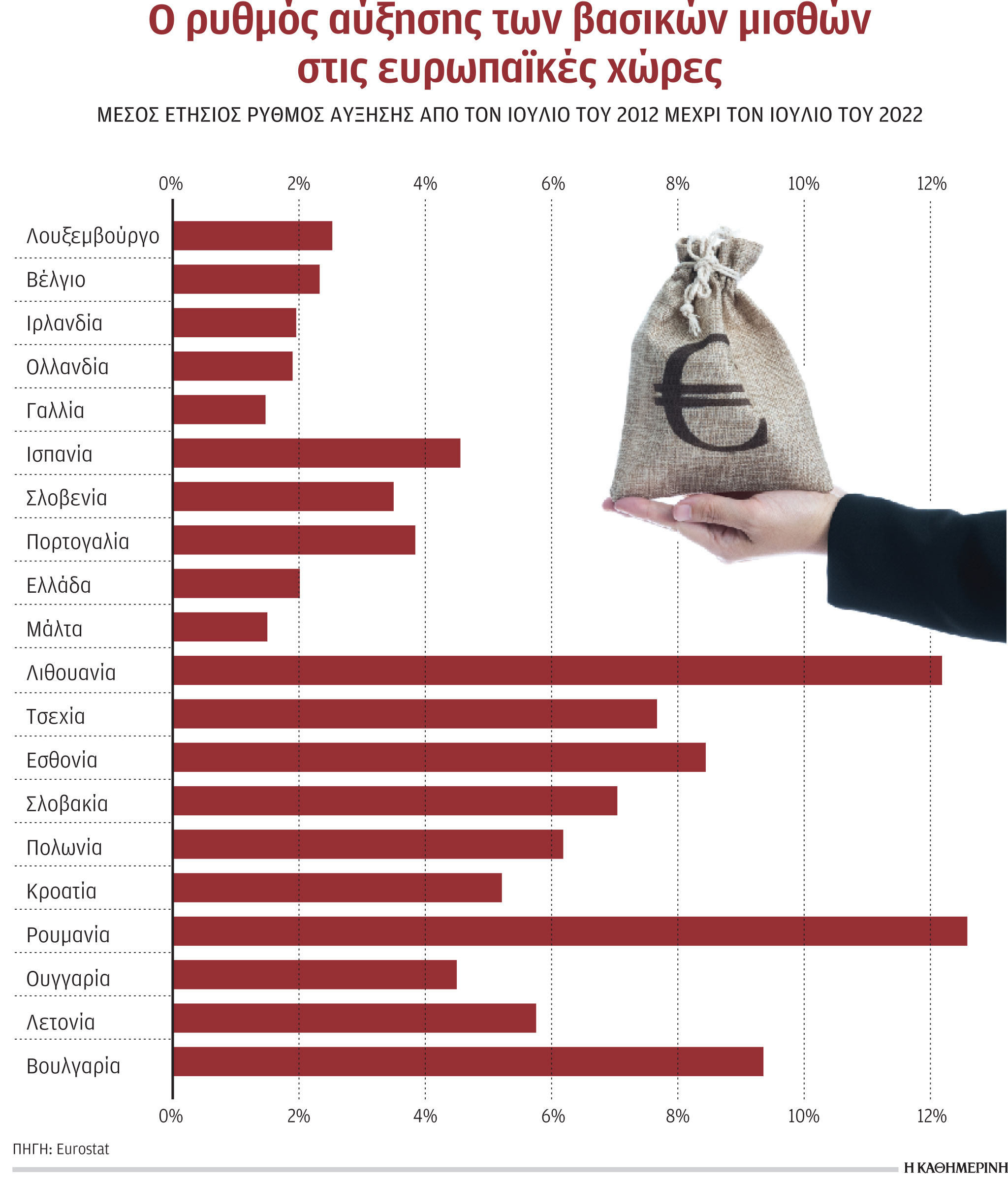
By inflation in Eurozone hopefully hit 10%, Europeans are struggling to make ends meet as any wage increase has not kept pace with the rate of price hikes. And although the situation is already extremely difficult, economists and ECB officials are warning them that they should expect the real value of their wages to decline due, of course, to inflation. In a sense, they are also asking to be accepted, so as not to drive the eurozone into a vicious circle of higher wages, leading to higher demand and further acceleration and consolidation of inflation.
According to EU Trade Union Union (ETUC), the real value of basic wages across Europe has declined despite any increase, averaging around a 5% decline. However, in some countries this decrease is as high as 20%. Among them are countries such as the Netherlands, where inflation has jumped to a dizzying 17% according to European data, and the Baltic countries, where it has more than doubled to 35%.
In Holland
In the Netherlands, where inflation jumped to 17%, the decline was as much as 20%.
In the Netherlands, one of the prosperous countries of the European north with a credit rating of three A and a permanent ally of Germany in disputes over economic and fiscal issues in the eurozone, the situation for the average worker looks bleak. A related Financial Times report talks about a 10 percent increase in base wages promised by the government starting in January. The government’s goal is to help Dutch households cope with the soaring cost of living following the Russian invasion of Ukraine, the British newspaper notes. Yet many Dutch people fear that their pay raise will not be enough to meet basic needs and pay bills. Since the end of February, prices for basic foodstuffs have been rising. A three-litre bottle of sunflower oil, vital to most Dutch households because it is widely used, now costs 10 euros, doubling in just a few months.
The situation is more or less the same throughout the Old Continent. “The current crisis is having a much bigger impact on workers’ wages than the global financial crisis,” notes Esther Lin, Deputy Secretary General of ETUC, who fails to consider that “no matter how well you manage your household budget, you won’t get through “.
EU directive
As the FT notes, Philip Lane, chief economist at the ECB, said last month that “in order to return to the previous state of low inflation, we need to ensure that business profitability falls for a while and wages do not adjust to inflation.” also for a while. However, not everyone shares his opinion. Some EU officials are pushing for low-wage workers to be paid decently and fairly. An EU directive that was recently approved requires that the net earnings of low-paid workers be at least 60% of gross wages. In the case of the Netherlands, something similar would apply with a 10% salary increase. However, if this directive is heeded and widely applied in the EU, then about 25 million workers will receive a 20 percent increase in wages.
Source: Kathimerini
Lori Barajas is an accomplished journalist, known for her insightful and thought-provoking writing on economy. She currently works as a writer at 247 news reel. With a passion for understanding the economy, Lori’s writing delves deep into the financial issues that matter most, providing readers with a unique perspective on current events.